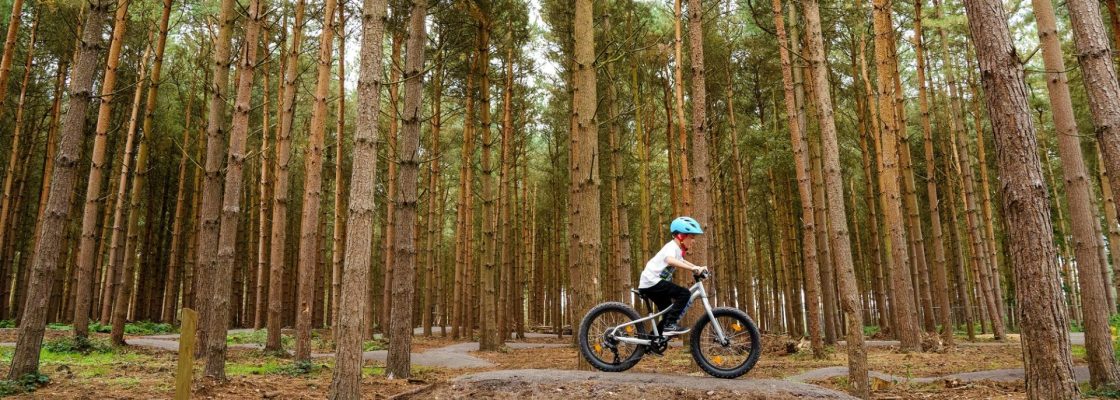Summary
Cultural ecosystem services are identified as the benefits people gain from their interactions with different environmental spaces, such as woods or parks, and the activities, such as walking and cycling, they undertake in these spaces.
Cultural ecosystem services are one of the four key components identified in the Millennium Ecosystem Assessment and United Kingdom National Ecosystem Assessment, along with provisioning, regulating and supporting services. Cultural ecosystem services are identified as the benefits people gain from their interactions with different environmental spaces, such as woods or parks, and the activities, such as walking and cycling, they undertake in these spaces. These interactions give rise to a variety of wellbeing benefits that are wide ranging and can be valued in numerous ways, via monetary, qualitative, quantitative, and mixed methods.
Cultural ecosystem services and benefits can include health, learning, social connections, sensory experiences, cultural and symbolic importance and identity. Our work in this area includes reviews, primary research, the monitoring and evaluation of programmes or interventions that aim to realise these benefits for different sections of society.
The work started in 2005 and is ongoing.
Forestry Commission policy
Part of the research is linked to the Forestry Commission Science and Innovation Strategy and the high level outcome of research that provides an evidence base to allow the forestry sector to deliver a wide range of benefits from forests and woodlands. www.forestry.gov.uk/research
Research Objectives
- To increase understanding of the cultural ecosystem services and benefits of trees, woodlands and forests and how they are valued
- To explore the impact of engaging with nature in terms of people’s wellbeing
- To review methods for integrating cultural ecosystem services, value and benefits in forestry
- To identify key factors that enable, mediate or restrict the realisation of cultural ecosystem benefits for different sections of the public
- To identify priorities and challenges for future research in the field
- To develop and harmonise social data and indicators within National Forest Inventories across Europe
- To develop frameworks and practical advice for practitioners, policymakers
Latest Update
The work undertaken so far includes:
- a synthesis and analysis of 31 studies focusing on trees, woods and forests and the wellbeing benefits they provide to a range of publics
- a review of methods for integrating cultural ecosystem services, values and benefits in forestry
- a review of the cultural ecosystem benefits of urban and peri-urban green infrastructure across different European countries
- work to explore social and environmental justice issues concerning who gains access to and benefits from trees and woodlands, green infrastructure and wider nature
- evaluations of a range of interventions including the Active Forest Programme and Grow Wild Programme
- research to understand the barriers to gaining cultural ecosystem services and benefits.
Further information
Atkinson, M and O’Brien, L. 2019. Cultural ecosystem services and benefits: Indicators for forests, trees and woodlands – a review. Forest Research, Farnham.
O’Brien, L. De Vreese, R, Kern, M, Sievanen, T, Stojanova, B. Atmis, E. (2017). Cultural ecosystem benefits of urban and peri-urban green infrastructure across different European Countries. Urban Forestry and Urban Greening. 24: 236-248.
O’Brien, L., Morris, J., Raum, S. 2017. FR_OBrien_et_al_Review_of_methods_for_integrating_cultural_ecosystem_services_2017.pdf. Forest Research, Farnham.
Davies, H. Doick, K. Handley, P. O’Brien, L. Wilson, J. 2017. Delivery of ecosystem services by urban forests. Forestry Commission, Research Report. Pp27.
O’Brien, L., De Vreese, R., Atmiş, E., Olafsson, A., Sievänen, T., Brennan, M., Sanchez, M., Panagopoulos, T., de Vries, S., Kern, M, Gentin, S., Saraiva, G., Almeida, A. (drafted) Social and environmental justice: diversity in access to and benefits from GI – examples from Europe. In D Pearlmutter, C Calfapietra, R Samson, L O’Brien, S Krajter Ostoic, G Sanesi, R Alonson del Amo (Eds) The urban forest: cultivating green infrastructure for people and the environment. Springer, Switzerland.
Kenter, J.O. 2016. Ecosystem services and the idea of shared values. Ecosystem Services 21, 184-193.
O’Brien, L. Morris, J and Stewart, A. 2014. Engaging with peri-urban woodlands in England: the contribution to people’s health and well-being and implications for future management. International Journal of Environmental Research and Public Health, 11(6), 6171-6192.
Collins, T., Goto, R. and Edwards, D. 2014. Future Forest: The Black Wood, Rannoch, Scotland. Landscape Research Group and Forest Research .(PDF
O’Brien, L and Morris, J. 2013. Well-being for all? The social distribution of benefits gained from woodlands and forests in Britain. Local Environment, 19, 4: 356-383.
O’Brien, L and Morris, J. 2013. Using woodlands to improve individual and community well-being. In R. Coles and Z. Millian. Landscape, well-being and Environment. Routledge, pp167-183.
O’Brien, E. 2006. A question of value: what do trees and forests mean to people in Vermont? Landscape research 31, 3: 257-275
O’Brien, E. 2005. Social and cultural values of trees and woodlands in northwest and southeast England. Forest, Snow and Landscape Research 79: 169-184.
O’Brien, E. 2005. Publics and woodlands: well-being, local identity, social learning, conflict and management. Forestry, 78: 321-336
The State of Europe’s Forests 2011: cultural and spiritual value
Cultural value of trees, woods and forests
Relationship between peri-urban woodlands and people’s health and wellbeing
Funders and partners
The work has been funded via a variety of sources including the Forestry Commission, EU Horizon 2020, EU Sixth Framework Programme, UN Economic Commission for Europe (UNECE) and Food and Agriculture Organization of the UN, Forestry Commission Scotland, Forestry Commission England.

